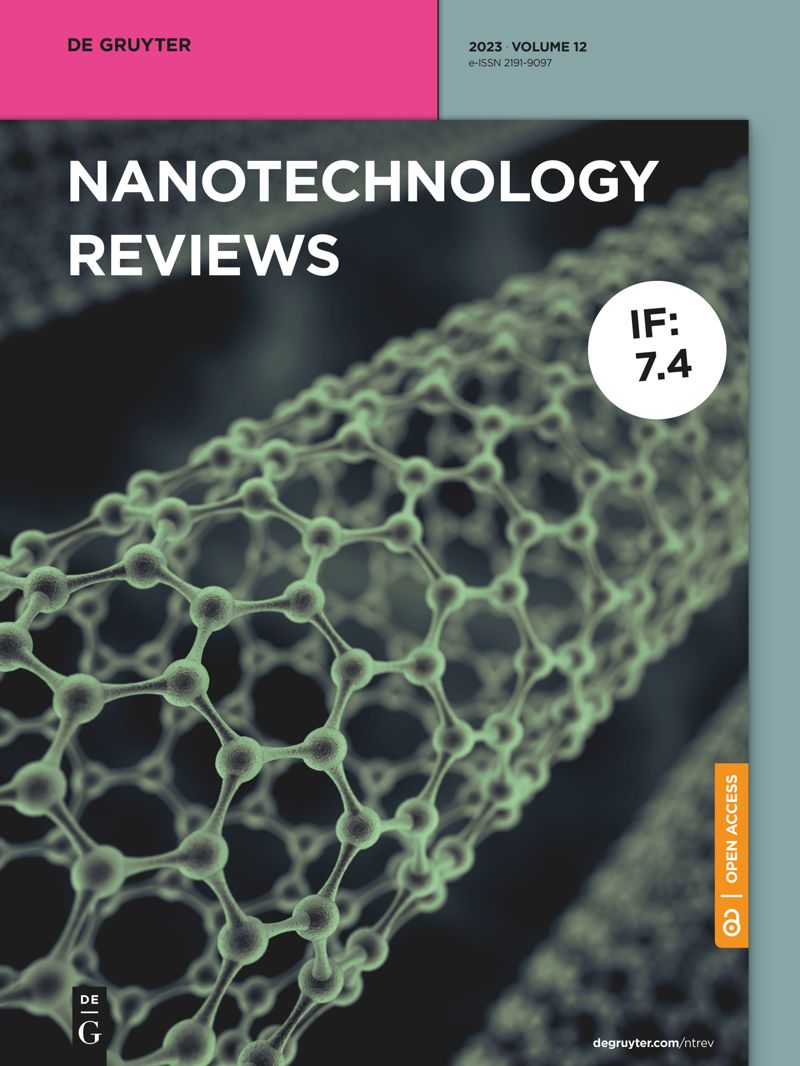Polyarylene ether nitrile dielectric films modified by HNTs@PDA hybrids for high-temperature resistant organic electronics field
IF 6.1
3区 材料科学
Q1 CHEMISTRY, MULTIDISCIPLINARY
引用次数: 2
Abstract
Abstract In this work, mussel-inspired surface functionalization of halloysite nanotubes (HNTs) were coated by in situ self-polymerization of polydopamine (PDA) to synthesize core-shell structural composites (HNTs@PDA), and then incorporated into polyarylene ether nitrile (PEN) matrix. Due to the strong adhesion of the PDA modification layer and the formation of hydrogen bonds between the polar nitrile group of PEN and the catechol group of PDA, the dispersion and interfacial compatibility of HNTs@PDA in the PEN matrix are improved. The results show that the dielectric constant of PEN/HNTs@PDA 20 nanocomposites reaches 11.56 (1 kHz), which is 3.2 times that of pure PEN. In addition, after heat treatment, a chemical cross-linking reaction occurred between the PEN matrix to form a cross-linked PEN (CPEN) based nanocomposites, which further improved the thermal stability of the nanocomposites. The results show that the T g of CPEN/HNTs@PDA 20 nanocomposites reaches 215.5°C, which is 47.7°C higher than that of PEN/HNTs@PDA 20. Moreover, the dielectric constant-temperature coefficient of all CPEN nanocomposites is less than 7 × 10−4°C−1 at the temperature range of 25–180°C. All in all, this work provides a simple and environmentally friendly strategy to adjust the dielectric properties of polymer-based ceramic nanocomposites, which provides a pathway for its application as a dielectric material in the film capacitors field.HNTs@PDA杂化物修饰的耐高温有机电子领域用聚芳醚腈介电膜
摘要本工作以贻贝为灵感,通过聚多巴胺(PDA)的原位自聚合,对羟基磷灰石纳米管(HNTs)进行表面功能化,合成核壳结构复合材料(HNTs@PDA),然后掺入聚芳醚腈(PEN)基体中。由于PDA改性层的强粘附性以及PEN的极性腈基和PDA的邻苯二酚基之间形成氢键HNTs@PDA在PEN矩阵中的改进。结果表明,PEN的介电常数/HNTs@PDA20纳米复合材料达到11.56(1 kHz),是纯PEN的3.2倍。此外,热处理后,PEN基体之间发生化学交联反应,形成交联的PEN(CPEN)基纳米复合材料,进一步提高了纳米复合材料的热稳定性。结果表明,CPEN/HNTs@PDA20纳米复合材料达到215.5°C,比PEN高47.7°C/HNTs@PDA20此外,在25–180°C的温度范围内,所有CPEN纳米复合材料的介电常数温度系数均小于7×10−4°C−1。总之,这项工作为调整聚合物基陶瓷纳米复合材料的介电性能提供了一种简单而环保的策略,为其作为介电材料在薄膜电容器领域的应用提供了途径。
本文章由计算机程序翻译,如有差异,请以英文原文为准。
求助全文
约1分钟内获得全文
求助全文
来源期刊

Nanotechnology Reviews
CHEMISTRY, MULTIDISCIPLINARY-NANOSCIENCE & NANOTECHNOLOGY
CiteScore
11.40
自引率
13.50%
发文量
137
审稿时长
7 weeks
期刊介绍:
The bimonthly journal Nanotechnology Reviews provides a platform for scientists and engineers of all involved disciplines to exchange important recent research on fundamental as well as applied aspects. While expert reviews provide a state of the art assessment on a specific topic, research highlight contributions present most recent and novel findings.
In addition to technical contributions, Nanotechnology Reviews publishes articles on implications of nanotechnology for society, environment, education, intellectual property, industry, and politics.
 求助内容:
求助内容: 应助结果提醒方式:
应助结果提醒方式:


